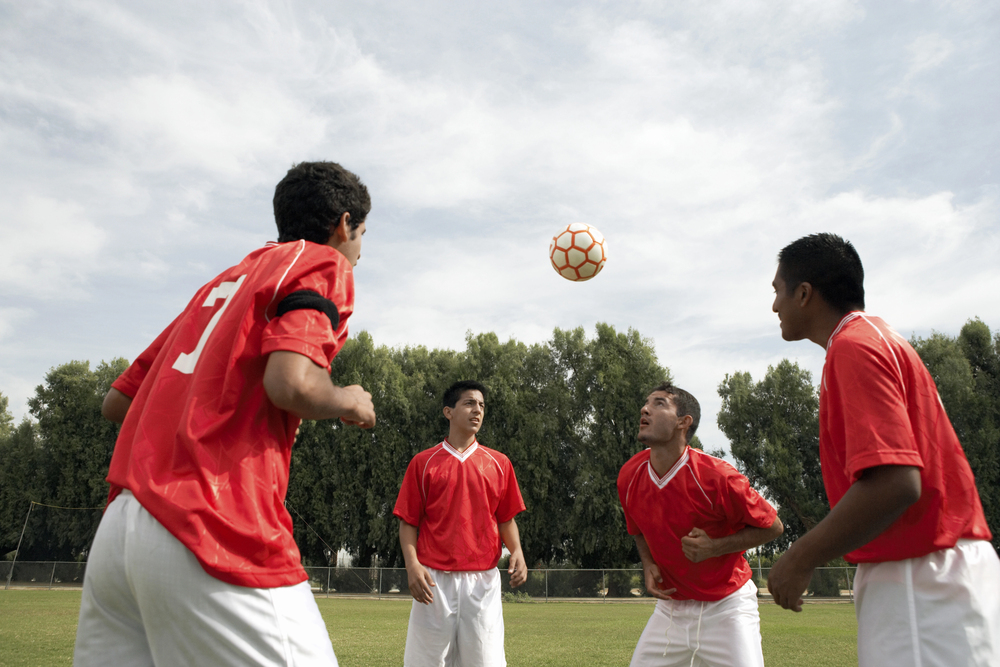Footballers warned about dementia risk from heading the ball

Heading footballs should be limited because of the link with an increased risk of dementia, Parkinson’s disease and muscle wasting disease ALS in later life, the Dutch health council has said in new recommendations.
A direct cause and effect between frequent heading the ball and brain damage is difficult to establish, the council said, but all studies on the subject point in that direction.
“Every header is a blow to the brain. A powerful header impacts vulnerable brain tissue, causing small bleeds and damage to brain cells in areas needed for functions such as memory and movement,” neurologist at Maastricht UMC, Marcel Ariës told broadcaster NOS.
After the summer, the council will publish several concrete measures, such as an age limit for heading, and measures such as lighter balls, fewer headers during training, and new rules to prevent players from heading powerful balls. Parents and trainers should also be made more aware of the risks, the council says.
Top professional players are two to three times more likely to develop dementia, with defenders running the most risk and goalkeepers the least, studies have shown. Rugby players and boxers are also two to three times as likely to develop dementia than the wider population.
“Footballers should by no means quit the sport,” health council chairwoman Karien Stronks said. “Moving lowers the risk of dementia, but heading comes with a risk.”
In 2021, the death at 63 of Sparta striker Wout Holverda, who was famous for his headers, was found to have been caused by dementia pugilistica, or boxer’s dementia caused by repeated blows to the head.
Belgium, France and the United States have already banned heading for the under-10s. In Britain, children under 11 are not allowed to head the ball, while Scotland and Northern Ireland have set the limit at 12.
Dementia is becoming the main cause of death in the Netherlands, and any preventative measures, such as avoiding traumatic brain damage through sports, would ease the pressure on healthcare, experts said.
Thank you for donating to DutchNews.nl.
We could not provide the Dutch News service, and keep it free of charge, without the generous support of our readers. Your donations allow us to report on issues you tell us matter, and provide you with a summary of the most important Dutch news each day.
Make a donation